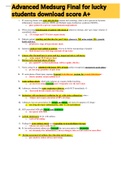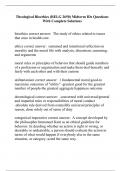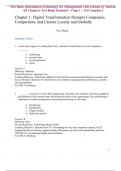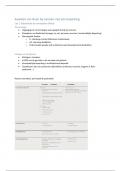Resumen
Samenvatting voor het tentamen van Topic Political Marketing, Campaigns and Voters
- Grado
- Institución
Volledige en verdiepende samenvatting van alle stof voor het tentamen, waaronder aantekeningen van de hoorcolleges en alle belangrijke theorieën, modellen en definities uit de literatuur. Ik heb met deze samenvatting het vak afgerond met een 8,7 Complete and in-depth summary of all exam materia...
[Mostrar más]











